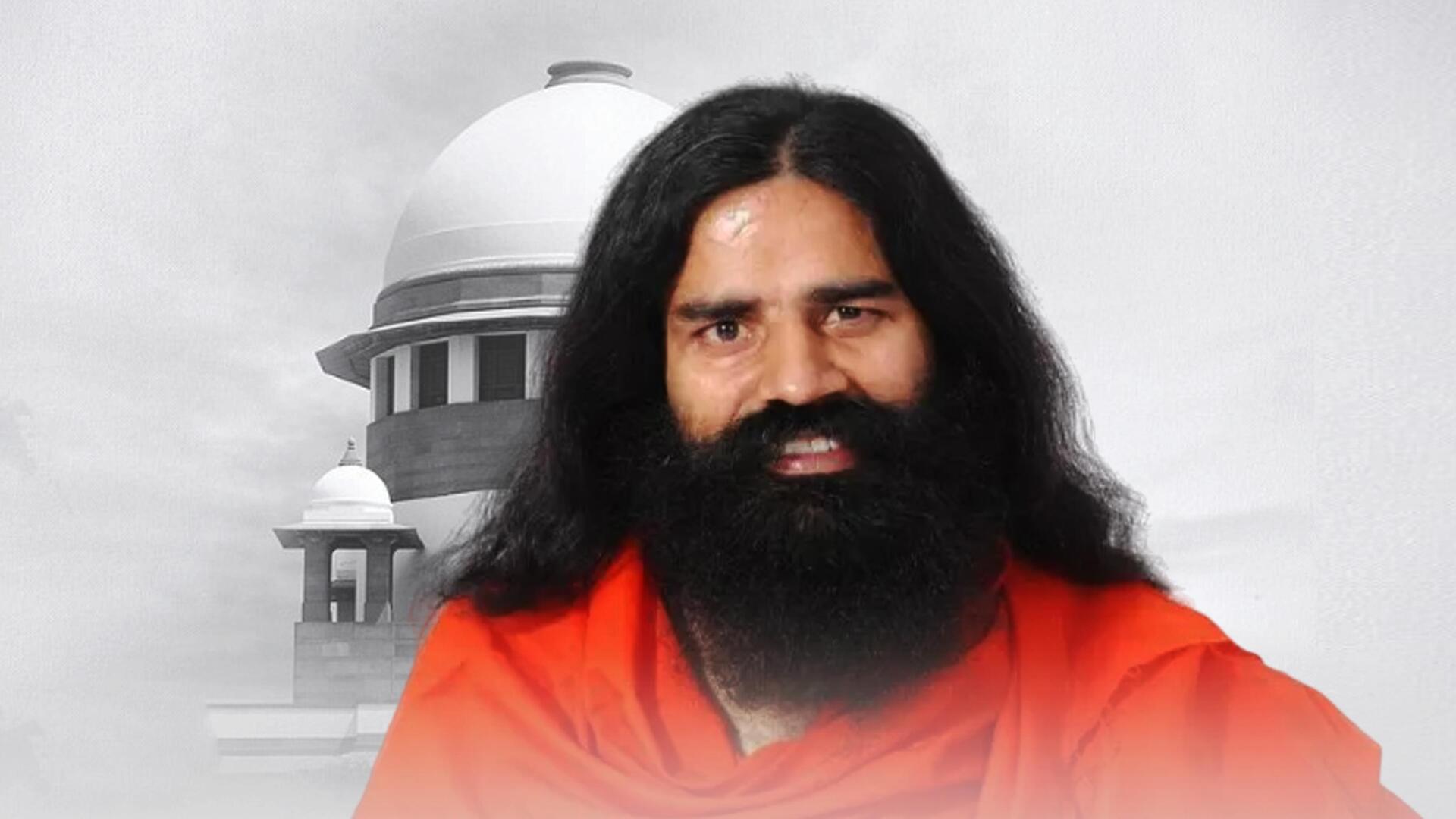
SC rejects Ramdev's apology in Patanjali 'misleading' ads case
What's the story
The Supreme Court said on Wednesday that it did not accept the apology tendered by Baba Ramdev and Patanjali Ayurved Managing Director Acharya Balkrishna in the misleading advertisements case.
The apologies were issued in response to earlier notices asking the two to show cause as to why contempt of court proceedings should not be initiated against them for allegedly flouting its directions.
The court also pulled up the Uttarakhand licensing authority for not acting against Patanjali for so long.
Context
Why does this story matter?
On February 27, the SC directed Patanjali Ayurved to immediately halt all electronic and print advertisements containing "misleading information" about its products.
It also came down heavily on the Centre for not taking any action against the false advertisements by the company.
This came after the court's warning to Patanjali in November 2023—while hearing a petition filed by the Indian Medical Association—against making "misleading" claims in advertisements.
Apologies rejected
Justices refuse to accept Patanjali founders' apologies
During the hearing, senior advocate Mukul Rohatgi, appearing for Ramdev and Balkrishna said the apology was "unconditional and unqualified."
To this, Justice Hima Kohli responded, "They are only on paper after they were caught on the wrong foot in court. We do not accept it...We consider it a willful, deliberate disobedience of the undertaking."
The court also highlighted that the founders first sent their apologies to the media before submitting them to it.
Action demanded
'Message needs to go out to society at large'
The court added that a message needs to go out to the society at large.
"(It is) not just about one FMCG but violation of the law. Look at your replies to state authority when they asked you to withdraw, you said HC said no coercive steps against us," the court said.
"We are making it a part of your conduct...larger picture is your conduct with the public at large," it added.
Leniency criticized
Supreme Court criticizes Uttarakhand licensing authority's leniency
The court then directed its attention to the Uttarakhand government, questioning why licensing inspectors failed to act.
It demanded the immediate suspension of three officers.
Expressing strong objections to labeling officers as "bonafide," the court declared it would not take the matter lightly, threatening severe consequences.
Highlighting a series of failures, the court criticized the licensing authority for its leniency toward violations and its failure to follow legal procedures.
SC pulls up authority
You are playing with people's lives: SC to licensing authority
The bench also accused the Uttarakhand licensing authority of mocking the Supreme Court.
"You are acting like a post office...Why don't we agree that you are hand-in-glove with Patanjali," the court asked the authority.
"You have been playing with people's lives," it added.
When the Uttarakhand counsel told the court that they will take action, Justice Kohli remarked, "Thank God, now you have woken up at last and realize that there is a statute existing."
Next hearing
Next hearing is scheduled for April 16
The SC also criticized Ramdev for attempting to avoid appearing in court by claiming he was traveling abroad.
Further, the court highlighted Divya Pharmacy's disregard for warnings from state authorities, evident from the tone of their response.
The court ordered that district Ayurvedic and Unani officers from 2018 onwards must submit replies detailing actions taken against such advertisements.
The next hearing is scheduled for April 16.
Association's plea
IMA highlights disparaging statements in advertisements
To recall, the IMA in its petition had highlighted several ads that allegedly depicted allopathy and doctors negatively.
The IMA argued that the "disparaging" statements were made by firms producing ayurvedic medicines, intending to mislead the public.
The counsel for the IMA pointed out that these advertisements implied that medical practitioners themselves were dying despite taking modern medicines.
The top court had previously asked the counsel representing the Centre to find a solution for misleading medical advertisements.